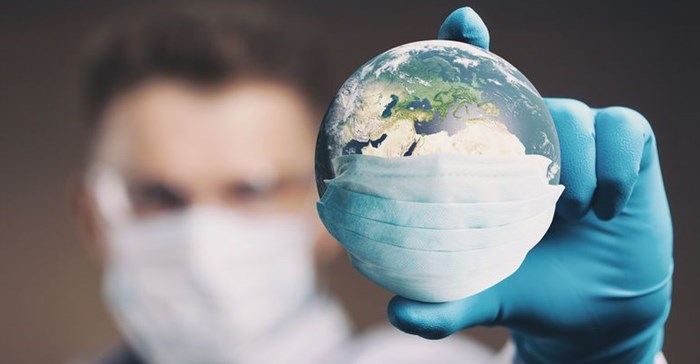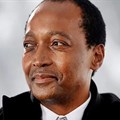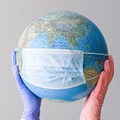The United Nations Environment Assembly (Unea) this year embraced the theme of One Health, which recognises the interdependence of human-, animal-, and environmental health.

Source: 123RF
Hosted in Nairobi, the capital of Kenya, the sixth Unea - which concluded on 1 March - drew home the urgency of this central idea which underscored the welcoming speech of Tedros Adhanom Ghebreyesus, Director-General of the World Health Organization (WHO).
He addressed more than 5,600 people – representing 190 countries at the week-long Assembly.
“Climate change, biodiversity loss, and pollution are the three biggest threats to Earth's wellbeing, he stressed. “The impact to human health is reaching critical levels, which is being directly experienced through extreme weather events, pollution-related diseases, and disruptions to food production.”
Ghebreyesus emphasised that these threats are not hypothetical risks that will happen in the future, but are right at our doorstep.
“This is what makes One Health the most compelling reason for climate-action change,” he said.
“Air pollution drives asthma; chronic obstructive chemicals and more heat waves contribute to cardiovascular disease; pollution causes lung cancer and chronic pulmonary diseases; chemicals such as lead cause disability, cardiovascular- and kidney diseases; and drought and water scarcity affect food production, making healthy diets less affordable.”
The urgency of multilateral action
Meanwhile, Ghebreyesus highlighted that climate change is leading to shifts in the behaviour, distribution, movement, range and intensity of mosquitoes, birds and other animals that are spreading infectious diseases - such as dengue and malaria - to new areas.
“Illegal trading of zoonotic spillover can trigger a pandemic, highlighting the importance of primary prevention to reduce risk,” he said.
To this end, Ghebreyesus focused on how multilateralism can help tackle the triple planetary crisis and he praised the implementation guide of the One Health Joint Plan of Action to support countries to design, implement and operationalise the One Health approach.
One Health, he said, is one of the important issues that WHO member states are now discussing as part of their negotiation of the new pandemic agreement ahead of the World Health Assembly in May this year.
“I urge you all to voice your support for the agreement,” he said.
African sovereignty concerns
But not everyone agrees with a global centralised health agenda and the signing of the pandemic agreement.
At the 2022 World Health Assembly 75, a 47-nation African bloc voted against most amendments to the US-led proposal of the International Health Regulations that are legally-binding on 196 countries, including the 194 WHO member states.
Africa stated that these regulations were broad, rushed, and can pose a threat to national sovereignty.
“The draft proposal [of the pandemic treaty] - yet to be formally decided - is seen as the first step in a broader IHR reform process; it would aim to change Article 59 that would speed up the implementation for future reforms from 24 to 12 months,” Shabnam Palesa-Mohamed said.
She is a journalist and lawyer, and holds many titles among them, founder of the Transformative Health Justice and co-convenor of the African Sovereignty Coalition.
“Our beautiful continent took a fantastic stance. It is the largest bloc and the African voice was heard,” Palesa-Mohamed said.
She was speaking at a Cape Town gathering of politicians, journalists and health specialists, among them the first female heart-transplant specialist, Susan Vosloo and South African scientist, Tim Noakes. She informed the group on South Africa’s option and rights to exit the World Health Organization.
Implications for South Africa
She highlighted that there are provisions in the pandemic treaty and the IHR that are extremely worrying for South Africans.
“Article 12 would give the Director-General of the WHO the sole authority to declare a public health emergency of international concern, and it would give him the power to declare a fake pandemic even if your country disagrees.
“The WHO can recommend that your country shut down and if our leaders are not savvy enough - or if there's a compromise - they're going to say yes, and then we have to follow the dictates of the WHO on testing [protocols] and products. In other words, the WHO wants to quarantine us when they even suspect we might have a thing - whatever the thing may be.
“If they don't like something South Africa is doing, they can declare a public health emergency of international concern in South Africa. This is a powerful and dangerous geopolitical tool.
“Which brings us to the subject of sanctions, as the UN can impose sanctions on our countries."
UN sanctions and Brics concerns
The sanctions could be implemented against countries that choose to not comply or cannot comply with International Health Regulations, the proposed new pandemic treaty, or other legislative attempts that curtail rights, freedom and sovereignty, Palesa-Mohamed said.
“Countries that could be sanction targets for non-compliance with the WHO and the UN, include but are not limited to, those in the steadily growing Brics initiative: Brazil, Russia, India, China and South Africa.
“Iran and Malaysia are reported to have expressed reservations to the proposed IHR amendments at the 2022 World Health Assembly 75. Russia is making decisive moves in the international arena and could possibly exit the WHO. In addition, India raised serious audit concerns on irregularities with WHO financials, including missing assets.”
Since 2022, “no doubt with persuasive behind the scenes manoeuvres, some of the most disturbing amendments are being proposed by African countries”, Palesa-Mohamed said. “Many relate to financing for the cost-intensive provisions of IHR amendments and the proposed pandemic treaty or accord."
But, not all African countries are swayed.
“Africa’s voice could block one of the only concrete reforms expected from the World Health Assembly meeting in May this year,” Palesa-Mohamed said.
One of the objections that these African nations are raising is where's the money going to come from? And where is South Africa going to get the money from?
"Palesa-Mohamed adds: The WHO is talking about mechanisms to make the financing available, but none of it is clear. They're saying “sign it and we’ll figure out the details later. To me, that sounds like Grand Theft Loss to me. Africa cannot afford more debt slavery.”
Tedros' call for global unity
But Ghebreyesus continues to push for a centralised health agenda within the framework of the One Health Policy. “The health of humans, animals and our environment is woven together in a world that is inextricable yet fragile,” he said at Unea. “This is not a new realisation. The father of medicine, Hippocrates said, the physician treats, Nature heals.
“We're not only relearning what humans have always known since the industrial revolution, but which we have forgotten or ignored: that when we harm our environment, we harm ourselves. For centuries we have plundered our planet in the name of progress. Now - with a triple planetary crisis: climate change, biodiversity loss, and pollution - we're paying the price.”

































